Text
If there is an afterlife, I hope Suzy McKee Charnas is having a ball with Vivienne Westwood right now. Rest in power. May your stories never die.
“My heart was in that one. Well, it’s in everything I write, and that’s why there’s not that much out there – a person only has so much heart, and there are so many fiercely legitimate calls upon it.”
— Suzy McKee Charnas, author of THE VAMPIRE TAPESTRY
40 notes
·
View notes
Text
How I find new shows to watch:
Recommendations from friends ❌
Adverts ❌
Netflix recommendations ❌
Tumblr gifsets ✅
20K notes
·
View notes
Note
people mostly use periods instead of commas, but the new tag also reads like a comma!
Thanks. It is fun and interesting to look at how Internet grammar develops. I remember how, on vBulletin boards, a friend and I discussed if it was better to use a period after an emoticon at the end of a sentence, or to use the emoticon as the sentence-ending symbol. Important? No. Fun? Yep.
1 note
·
View note
Text
When it comes to understanding migration, this needs to be taken into account: if you are in a rural area in the global south, like Honduras, you have basically no access to social services, medicine, and education. In fact, the funding for those services is actually being cut, as the social security funds have been looted by corrupt politicans appointed by a military coup. Then you have to factor in that you likely have no access to the land, and no access to credit to buy seeds, and have to sell yourself for basically pennies to an agroindustrial giant. The peasants feed the local people; the agroindustries feed the Americans. In Guatamala, there is a neo-corporate fuedalism where you are allowed a patch of land if you are willing to work, unpaid, for coffee plantations which sell their produce to the German company Ritz. If you attempt to settle unoccupied land, a local businessman will claim it is his without any proof, and the police will take his side because the Agrarian Reform Institute, which issues land titles, is controlled by coupists whose main concern is squeezing as much wealth out of the country as possible. Thugs will murder a man and his wife in broad daylight, and the judge will respond by evicting you and your family from the land.
There is nowhere else for you to go but Tegucigalpa, where you can work trying to wash car windows or selling snacks to passing cars for a handful of lempira a day. Or perhaps you could work for a few dollars a day in one of the maquila factories making textiles for the American and European market, which are set up in special economic zones called Charter Cities where the constitution and labour laws do not apply, which can close down and spirit away whenever they like to another country when they are more willing to sell their people for even less. And then you have to factor in the hurricanes that sweep through the country, destroying everything, that the rains no longer come when they used to but when they do they come in flooding torrents. Much of the north of Honduras is currently underwater; most of the banana and coffee plantations have been destroyed.
And then you factor in when you tried to change this via electing a better government in 2006, he was overthrown in 2009; when you tried to get organised and resist the coup, your friends, your loved ones, your trade union leaders and peasant resisters all turned up mysteriously dead while the military and police worked with drug gangs disguised as agribusiness like the Dinant coproration to burn down villages that opposed them. For trying to change things in the way that you were supposed to, through non violently protesting, organising, and voting for something better, you were subjected to a decade of counterrevolutionary terror and violence that the “international community” not only ignored but gave its active approval to. All of the factors listed above have not only been ongoing for the last 10 years, they’ve been intensified, hothoused by the global counterrevolutionary terror that was the response to the 2011 wave of post-financial crisis uprisings and revolutions and accelerating climate apocalypse.
And at the same time, all of this is being done so more of the country can be turned into a massive cash cow for the benefit of foreign corporations and domestic oligarchs. The wealth of your country is siphoned off and flows around the American and European financial system, benefiting them and building a consumer disneyland that looks like paradise compared to your situation. That could, even if you are worked for nothing, give you a few dollars to send home that could build your abuela in the countryside a nice home for her to live out her days. What other option is left for you and your family other than joining the exodus of people heading north, to the countries where the wealth and profits and rewards of your homeland’s suffering are being kept. And after you cross mountains and rivers which freeze you to death and sweep you away, you are faced with a massive border wall of ahte and soldiers on horses which hit you with sticks. You are faced with an immigration detention centre that will chain you to your bed while you give birth and separate you from your baby who will be given away for adoption to a white couple. When you make a charge against the border fence in Melilla, fed up with being kept in shacks with nothing while the Northerners debate what to do about the problem people their greed has forced to move, the Moroccan police will beat 35 of you to death.
And then when you get there to that golden paradise, you end up doing work not dissimilar to the work you were doing back home, working for pennies (though pennies that are valuable enough back home to buy the family that remain the tiniest slice of comfort) for an agroindustrial giant that supplies supermarkets with cheap produce picked by cheaper people. While you work in the fields, a crop duster plane will spray you with paraquat; when support organisations try to raise this with OSHA they will ask for the plane’s number, and when this can’t be provided they will say nothing can be done. In fact, inspectors are ordered to stay away from the plantations on the Texas border. A member of the Border Agricultural Workers Project says she hasn’t seen a normal child born on the border in 20 years, such is the effect of agrichemicals. If you fuck up in the slightest, have any interaction with the state, you will be deported and sent back to square one. There are a 14 million migrants in the US in the same precarious state, effectively without any way of enforcing their rights. My aunt is a Mexican migrant in California. Her son was deported because he got a speeding ticket. It was 15 years before she saw him again, other than through the bars of the border fence, when she finally got her green card.
The situation in Honduras can be repeated for almost any other country. Syria, Venezuela, Iraq, South Sudan, Libya, all the headline countries are countries that have been subjected to a severe counterrevolutionary terror. The processes of dispossession and destruction of peasant economies and communities (primitive accumulation to use the Marxist jargon) have been hothoused over the last decade by war and violence. I just wish that relatively comfortable people in the imperialist countries realised that the “migrant crisis” is the result of policies that their governments forced on others. Violence that their elites made their fortunes off. What a monstrous, barbarous way of life we have.
11K notes
·
View notes
Photo
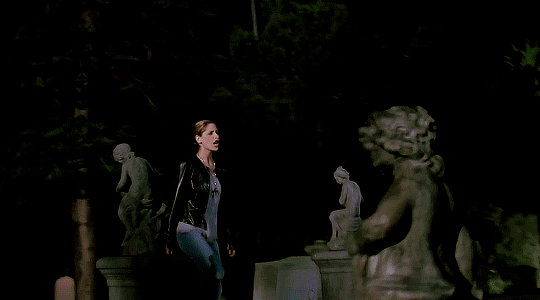

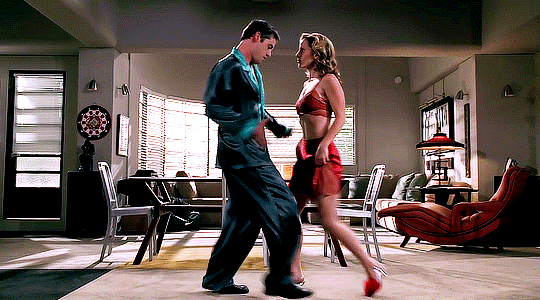


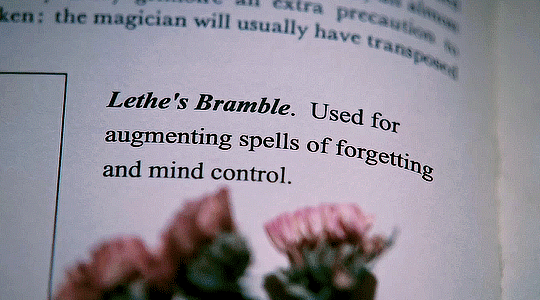
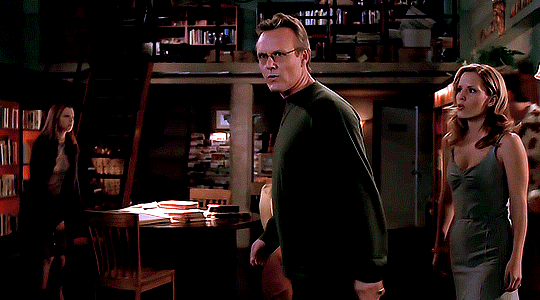
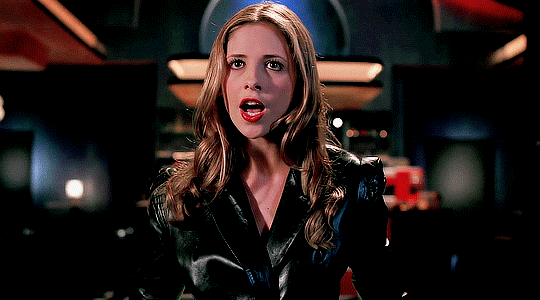
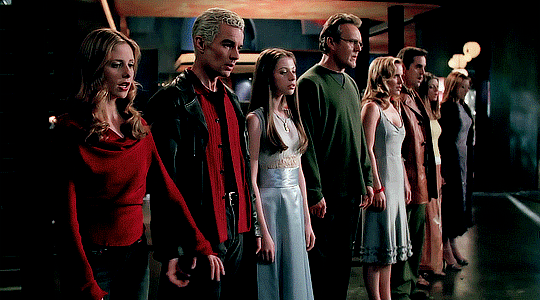

BUFFY THE VAMPIRE SLAYER | S6E7: Once More, With Feeling Original Airdate: November 6, 2001
3K notes
·
View notes
Text
so i have a mildly popular “reblog and put in in the tags” post going around and its. very clear how many people don’t know how to interact with a tumblr post
so, first of all, tumblr’s culture has changed a lot in the past couple years. there’s a genuine community effort to not start any drama, and ironically a lot of the current hostility is an effort to keep things calm. there’s also a change in how people interact with posts, so if you haven’t been here in a while please skip down to the tags/replies/reblog with text section.
for newcomers: you should be reblogging posts about as liberally as you would like something on twitter. if you only like stuff, people will think you are rude/a bot. you’ve probably heard people talk about “cultivating your dash,” and thats because this platform is 100% centered around your dashboard. trending matters less, unfollowing and blocking in order to shape your dash into it’s best form is widely accepted, the majority of the content you’ll find and interact with will be because of your dash, and the only way to put things on your dash is to reblog them. tumblr users are deeply distrustful of algorithms and have largely turned off the “see posts your friends have liked” function (i recommend you also turn of the various algorithms in settings → general settings → dashboard preferences).
so, once you’ve reblogged a post, there’s three ways to add content to it. the tags, replies, and reblogging with text. all of them have different connotations
the tags: an inside voice. originally they were meant for organizing your blog (and they’re still used for this), but they’ve also morphed into a way to share thoughts that aren’t funny/insightful enough for non-followers to be interested in. when in doubt, put your comment in the tags
replies: basically talking to your friends in class. your followers have no way of finding your replies (they don’t pop up on the dash, nobody gets notified except for the original poster) so chances are, only the person who made the post is gonna see your comment. it’s for quick one-offs that you’re okay with other people overhearing, but really is only made for one person. they’re like a public dm
reblog with text: an outside voice. you’re getting up on a stage in town square and entertaining people. make sure it’s funny or insightful— bottom line, add something new to the conversation. you should use this the least
general rules of thumb:
when in doubt, reblog. people will judge you if your blog is only personal posts and you only interact with other content by liking it.
the only things people will judge you for reblogging are personal vent posts. leave a like to give a little virtual hug
if a post is asking about your personality/opinions (i.e: tell me what’s the last tv show you watched, that kind of thing) put it in the tags
also if you see a nice edit, gifset, or art, reblog and say something nice in the tags! it’s that nice sweet spot of common enough that no one will notice but uncommon enough to make the artist’s day
#I think this is really confusing even though I have had a tumblr account for years#then the proper action is to reblog and moan about my confusion in the tags?#how do people handle not being able to put commas in tags?
68K notes
·
View notes
Note
I enjoyed the little exchange where Felice (I think) tells Madison that she can speak Swedish to her, and Maddie replying that she doesn’t like to sound stupid or something to that effect. When you live your daily life in a language that isn’t your first, there are so many situations where your vocabulary just doesn’t cut it.
This is coming from an English speaking American here; Do you think the character Madison mainly exists to help bring in more of an international audience or for people who don't speak Swedish? Because that's what I think. Despite that I do like her as a character and for me she's kind of nice to have where I don't have to read subtitles for a second lol
I've not really thought about that. Having international students are very common in such school, So I've always seen it as just a portray of that... But I like that it gave you some sort of subtitle break 😅
16 notes
·
View notes
Photo




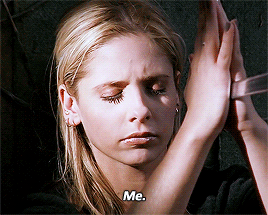

2x22 // 7x05
716 notes
·
View notes
Note
Agreed. Marcus is not intentionally manipulative. Like many guys wanting to be, and seeing themselves as Nice Guys(TM), though, he is gently manipulating his romantic interest while believing that he is only doing what is in the interest of both of them. Marcus is still very young, too. He doesn't understand that he is breaching boundaries, because he didn't notice the boundaries in the first place.
If we were fast forwarding a decade now, asking Marcus in his late twenties what he thought of those weeks with Simon, the answer we'd get would depend greatly on the next person or few persons Marcus falls in love with. If he's lucky, he'll meet a man who stands his ground and shows him how friendly, unintentional manipulation is still manipulation.
Besides, at the end of the day, we all get a little blind and stupid when we fall in love.
The thing is, I do think Marcus was very manipulative, but I also don't think he was doing IG deliberately. I don't think he thought "oh, I'm going to manipulate him".
No for sure. I don't think Marcus is evil lmao. I think he probably did all of his gaslighting unintentionally. It doesn't excuse it still, but it does explain it. I don't think he went into the relationship like "I'm going to make this kid feel awful about himself," but I think he certainly could have, and should have, respected Simon more.
28 notes
·
View notes
Text
I watch it in Swedish, turning the Swedish subtitles on if I am curious about a word or expression.
I'm curious. Reblog this and tell me what language you watch Young Royals in and your choice of subtitles.
For example, I watch Young Royals in Swedish with English subtitles.
127 notes
·
View notes
Text
So very meta. Might have to watch "Romeo and Juliet" again.
they really gave me the set up for a wlw couple who are roommates at a prestigious boarding school, best friends since childhood who platonically make out at parties but one is definitely pining while the other might be oblivious (so far) and you're telling me i have to anxiously wait if there even is a continuation of their story in s3

146 notes
·
View notes
Text
If you love "Young Royals" and haven't yet watched "SKAM", this is your reminder that you'd probably enjoy that as well.
If you are a fan of "SKAM", this picture of the place where I breakfasted today is here to suffuse your day with cozy Oslo autumn morning vibes. Do you recognise the café?

50 notes
·
View notes
Text
In 2020, The Deutschland Series is As Relevant As Ever
https://ift.tt/eA8V8J
The final season of the Deutschland spy series begins with an ending. In the opening episode of Deutschland 89, the Berlin Wall falls, giving East German citizens free movement to West Germany and beyond for the first time in decades. What follows in the eight-episode final season is a social study in how different people react when their reality is suddenly and fundamentally altered. In the year 2020, as the world continues to reel from the seismic changes COVID-19 has wrought, it’s an unexpectedly relatable experience.
“Deutschland 89 is really about how people have to reinvent themselves during a crisis,” says Deutschland series co-creator Joerg Winger. “So I think, in that way, it does reflect today, but that was not intentional.”
From the beginning, the Deutschland series—which launched in 2015 with Deutschland 83, continued in 2018 with Deutschland 86, and just concluded with Deutschland 89—has used history as a metaphor for contemporary politics. Because of this and because, as Faulkner famously wrote, “The past is never dead. It’s not even past,” it has never been hard to find topical parallels in the Deutschland story, especially when the world skews unfortunately closer to the historic tensions depicted.
“I still remember when Joerg and I first started working on Deutschland 83, thinking, ‘Maybe we’ll have to remind people of the Cold War. Maybe they won’t remember any of this,’” says co-creator Anna Winger (who also co-created Netflix’s 2020 German-American drama Unorthodox). “And then the tension with Russia began again, and there was this sort of egocentric writer moment where you’re like, ‘Did I write it and make it happen? Why is this happening again?’ … Certainly, we couldn’t have predicted tension with Russia coming back, but I think that the polarization definitely, the idea that you’re on one side or you’re on the other side, and that there is this kind of way in which the world has become divided, we were definitely exploring that.”
Deutschland 83 follows East German kid Martin Rauch (Jonas Nay) as he is forced by his HVA agent aunt Lenora (Maria Schrader) and his estranged father Walter (Sylvester Groth) to become a spy in West Germany. Using the real-life Able Archer incident (which some historians believe is the closest we’ve come to nuclear war since the Cuban Missile Crisis) as setting, the first season is a fast-paced yet complex cautionary tale of what can happen when we lose track of the bigger picture in favor of political allegiances.
On a more character-driven level, Deutschland 83 is the story of a young man caught between a desperation to stay alive so he can return home to his ill mother and pregnant girlfriend and a desire to keep the world from erupting into nuclear disaster. Because of this, much of the success of that first season and moving forward relied on the casting of the overwhelmed yet capable Martin. When Nay read the script for the Deutschland 83 pilot, he knew he wanted the part.
“I think that the first episode of the whole series is a masterpiece in throwing you directly into something,” says Nay. “I think, dramaturgy-wise, it’s really brilliant. For me, as a reader, I was so addicted. I immediately wanted to know where it went and I so deeply wanted to play that part of Martin.”
Later, Nay would find out that Anna Winger had his picture on the wall during the writing process, imagining him as Martin, but Nay didn’t know that when he went for the part.
“I hadn’t played something of that genre, or anything comparable to that before,” says Nay. “So I don’t really know where she had the impression from that this could be a part for me, actually. The things I shot before were more like society drama, feature films. It was really, really, really different.”
Joerg Winger says that Nay was always their first choice.
“There was a discussion we had at a later point with the directors in 83, who were thinking, maybe we need someone who’s more of a conventional hero, like a young James Bond kind of actor,” says Joerg Winger. “But I think, for us, it was really important that he has something vulnerable since one of the tweaks of the spy genre in Deutschland 83 is that it’s a spy show combined with a coming-of-age drama, and Jonas has the vulnerability and almost the boyishness and innocence. He’s a very good, solid person. And that translates also, I think, into his performance.”
The initial idea for the series came from Joerg Winger’s own military service experience during the 80s as a conscripted Bundeswehr soldier in West Germany, intercepting messages from Russian troops in the German Democratic Republic. But, for many people watching the series who were born after 89, a divided Germany may be hard to imagine.
“With young people, it’s almost like what you learn in school ends with World War II, and then you never really got to the Cold War,” says Anna Winger. “So, for a lot of young people, at least in Germany, they would say to us, ‘This is like science fiction.’ It’s like, ‘Imagine a world, and there’s a wall that goes down the middle of Berlin, and West Berlin is cut off from supplies, and you can’t get across it.’ And you know, if you were to describe all that to anyone who was born in Berlin since 1989, it would sound absurd. It’s like, ‘And the dinosaurs roamed the earth.’ It’s very crazy to them. So, in a funny way, I’ve always thought the show is a little bit like the past as science fiction.”
Nay, who was born in 1990, days before the reunification of Germany, is one of those people.
“I think there’s actually a lot that changed my awareness of close German history, in particular the 80s, of course,” says Nay. “I remember that when I read the first series, the first question that came to my mind was: ‘Were we really so close to a nuclear war? Would anybody have told me if it was so close? Isn’t that crazy that nobody told me before? Is it real or is it just made up, to increase attention?’ I was like, ‘OK, it seems a little odd to me that we were close before to a nuclear war and I never heard that before.’ I’m really curious now what is going on behind closed walls, what I don’t know about nowadays.”
While all three seasons of the Deutschland series explores many of the same themes, the three-year time jump built into the fabric of the show means each season gets a soft narrative reset for its characters and setting. When asked about the choice to have three-year time jumps, Joerg Winger said it was somewhat incidental. Because of Able Archer and some of the Neue Deutsche Welle music circa 1983, the Wingers knew they wanted to start their story in 1983. They also knew that they wanted to do a trilogy and that it should end in 1989, with the fall of the Berlin Wall. Because of this, of the three settings, 1986 is the most random.
“I think it’s a little bit like the Buddhist wisdom: wherever you dig, if you dig for long enough, you’ll find something,” says Joerg Winger of the 1986 setting. “We were a little bit nervous about the 86 question. When we started 86, we were like, ‘OK, so what are we going to find in ’86?’ But then there’s just so much.”
When we catch back up with Martin in Deutschland 86, he has been exiled from East Germany for three years, living in Angola where he teaches English at an orphanage. While the other two seasons in the story keep their focus relatively tight on East and West Germany, Deutschland 86 expands its Cold War scope to visit places like Libya and Paris, where geopolitical tensions are manifesting in different ways but are still part of the same global story.
“We started writing 86 the day after the Trump election,” says Anna Winger, “and I remember feeling really focused on looking at capitalism, because the story of 86 is kind of about the capitalist core of the engine that kept the communist regime going. And you see all these guys who are holding on to what they’ve managed to build at all costs, even though it’s all really coming apart.”
The Deutschland storyline comes to fruition in Deutschland 89. Three years following the events of Deutschland 86, the East German government is in even more dire straits. They are out of money, and the people are protesting. The final season is set against the backdrop of the collapse of the East German government.
“People didn’t know what was going to happen for a few months, and that is a very unusual situation,” says Anna Winger of the time period. “And also, for all these spies, they were really good spies, and suddenly, they had no country, the goals were completely unclear, and they were in the same place. The crazy thing about people in Berlin who live on the East side is they haven’t gone anywhere, but everything else has changed. It’s as if their country completely changed, and they’re still living on the same piece of earth, and that’s wild.”
The Deutschland series may explore East German life in the 1980s at different stages of Communist collapse, but the parallels to the experience of living in today’s crumbling capitalism are striking.
“I think as we came towards the end of the arc of the trilogy, certainly we got deeper and deeper into exploring late-stage capitalism and how that’s the patriarchy holding onto power in any sort of regime,” says Anna Winger. “We’re writing a show about late-stage communism or socialism, but it still has a lot of parallels to late-stage capitalism.”
In the midst of it all, is Martin Rauch, an audience surrogate for an everyday person just trying to live a good life with the people he loves amidst political and social turmoil. By Deutschland 89, Martin is understandably much more jaded than his 83-era self, but he has also somehow held onto his humanity.
“What Anna and Joerg always told me was that when they created Martin and how they wanted him to succeed, he should always have this moral compass that he’s following,” says Nay. “In a big contrast to all the people around him, like [his aunt] Lenora or [his father] Schweppenstette, that they are following rules given from somebody else or they’re following their idealism, their socialist idea. Martin had the chance of getting a pretty uncolored picture of East and West, of both the states and both the sides. He had to find his own [way].”
Martin’s ability to hold onto his humanity, to maintain some kind of admirable moral compass despite all of the things he has been through, is where much of the optimism in the Deutschland series ultimately lies.
“I always saw it like Martin being in the middle and people from left and right trying to pull him in directions and he’s always trying to see or weigh out which is best for him and also for people around him,” says Nay. “He’s like, yeah, it’s a hero thing I guess. I don’t know. Yeah, Joerg and Anna wanted Martin to keep that. So it was kind of a challenge to, of course, let Martin grow up and let him harden and let him be very, very suspicious, more and more, not trusting anybody because what he learns is that, if he trusts somebody, he’s going to be betrayed so he has to keep it in himself. That is the development that he goes through through all the seasons. Then, given this little lovable touch of hero-ness and moral compass, not losing that. It was kind of a balance act I would say. I gave my very best.”
Ultimately, the Deutschland series ends as it told its story: thoughtfully, and with a fundamental empathy that doesn’t guarantee a happy ending but rather something better. The possibility of holding onto one’s humanity through pain and suffering and amongst forces so much larger than any one person. In 2020, that may be the flavor of happy ending we need most of all.
“In 89, the shit’s hit the fan, and it’s really over, and people are scrambling to redefine themselves,” says Anna Winger. “But I suppose, if there’s a message to the whole thing, it’s that there are possibilities in chaos. And this is truly something I think we can learn from Germany: is that maybe there’s the possibility of reinvention that is positive, that there’s hope in reinvention, and that maybe when things come apart, there’s a chance for something good to come out of it.”
cnx.cmd.push(function() { cnx({ playerId: "106e33c0-3911-473c-b599-b1426db57530", }).render("0270c398a82f44f49c23c16122516796"); });
The entirety of the Deutschland series is now available to watch on Hulu.
The post In 2020, The Deutschland Series is As Relevant As Ever appeared first on Den of Geek.
from Den of Geek https://ift.tt/2JLtG55
3 notes
·
View notes
Text
So, when I love Tim and love SKAM, I ought to finally watch Druck?
Hold the fuck up

26 notes
·
View notes
Text
ok in the tags, where were you/what were you doing when the queen died
22K notes
·
View notes
Link
This. So very this. Wo ist der Alex?
Continuing my weekly Deutschland 89 blog series to coincide with the UK broadcast of the final series, we’ve reached the all important question: Wo bist du, Alex? I’ve addressed this in fan fiction, of course, but this is a more serious reflection on the disappearance of LGBTQ history - specifically male gay/bi history at a time in which the HIV/AIDS crisis was at its height.
5 notes
·
View notes
Text
But of course.
watched 5 episodes of Deutschland 86 and called it “language learning” lol
40 notes
·
View notes